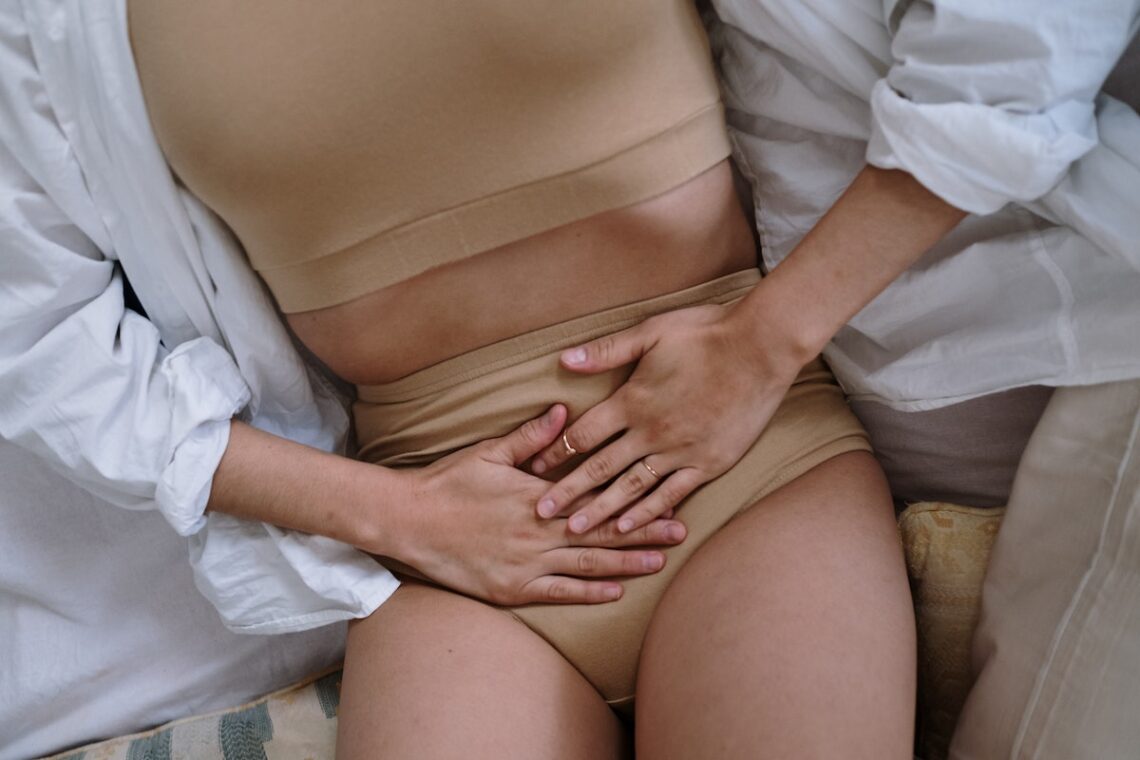Some women experience pain in the lower abdomen during sex. It can be due to a variety of causes, from a lack of lubrication to larger reproductive system issues.
Endometriosis, for example, is an ailment that occurs when the tissue that lines your uterus grows outside of the uterus on other pelvic organs. It’s a painful condition that’s difficult to treat.
Endometriosis
Endometriosis is a condition that causes pain throughout the body, including in the pelvis and genital area. It is caused by tissue resembling the uterus lining that grows outside of the uterus. The most common symptoms include painful periods, pain during and after bowel movements and pelvic pain. It can also cause infertility.
Many medical professionals do not understand endometriosis and may dismiss a woman’s symptoms as “normal.” As such, they often miss the diagnosis. Women with endometriosis may be misdiagnosed for conditions like irritable bowel syndrome, appendicitis, ovarian cysts or colon cancer – These words come from the service tubeallsex.com.
Women with endometriosis often experience pelvic and lower abdominal pain, pain during menstrual cycles (dysmenorrhea) and pain during sex (dyspareunia). The symptoms of this disease can vary and can get worse or better with time. Treatment options can include medication, surgery and pelvic floor exercises. This condition can also lead to adhesions, which cause pelvic tissues and organs to stick together.
Ovarian cysts
Ovarian cysts are fluid-filled pockets that develop in or on the ovaries. They can be painful if they are related to a condition like endometriosis or polycystic ovary syndrome or caused by hormone changes in perimenopause and menopause. Ovarian cysts may also cause problems with your menstrual periods, such as abnormal or irregular bleeding.
Most ovarian cysts are functional, meaning they are a normal part of the menstrual cycle and usually disappear on their own over time. Some do not go away and lead to complications, such as a twisted ovary (torsion) or a ruptured cyst.
If you have ovarian pain, your healthcare provider will examine your abdomen and pelvis. They will also do a pap smear to check for infection and abnormal cells in the uterus. They may also do blood tests to check your hormone levels and to see if you are bleeding from the cyst.
Fibroids
Fibroids are noncancerous, benign growths in the uterus (womb). They can cause pain during sex if they are located close to the cervix. Fibroids can also interfere with fertility and, in some cases, increase the likelihood of miscarriage or a Caesarean section. Other symptoms of fibroids include changes in the menstrual cycle, heavy bleeding during periods, anemia, a feeling of fullness or pressure in your lower abdomen, and a swollen pelvic area.
If you have painful sex or a loss of desire for sex, talk to your doctor. They can recommend treatment methods to alleviate your symptoms. These may include using vaginal lubricants, changing your sex position and eating a diet low in fat and caffeine. They may also recommend a procedure called Uterine Fibroid Embolization (UFE) to shrink fibroids and relieve pain after sex. This is an outpatient treatment that requires no hospital stay and doesn’t require general anesthesia.
Uterine adhesions
During pregnancy, the uterus grows and expands to accommodate a growing baby. This often causes the lining of the uterus to get stuck to the walls of the uterus, causing scarring and adhesions. Symptoms of this include abdominal pain during sexual intercourse. These can also lead to pelvic inflammatory disease (PID) and infertility.
Women may experience painful sex during the third trimester of their pregnancy due to the weight of their growing uterus, which can be uncomfortable for the partner. Using extra lubricant or changing your intercourse position can help relieve discomfort. In addition, women suffering from uterine adhesions can take an over-the-counter pain medication such as ibuprofen to alleviate the pain during sexual intercourse.
STIs
If a woman is infected with a sexually transmitted disease, such as chlamydia or gonorrhea, they may experience lower abdominal pain during sex. These infections can travel from the vagina to the uterus, fallopian tubes and/or ovaries. These infections, as well as pelvic inflammatory disease (PID), can cause a wide variety of symptoms, including itching in the genital area, discharge from the vagina or penis, pain during sex, sores on the vulva or anus and/or painful urination.
Abnormal growths in the reproductive organs can also trigger pain during sex. These include ovarian cysts, which are fluid-filled pockets that develop inside or on the surface of the ovaries; and fibroids, noncancerous tumors that develop in or on the uterus. Another abnormal growth that can cause pain during sex is uterine adhesions, which are the result of scar tissue in the uterus or cervix that causes them to stick together.
Other infections
In most cases, cramping or pain after sex during pregnancy is not cause for concern unless it’s severe and causes bleeding. If you’re worried, talk to your healthcare provider about it and carefully experiment with different positions and depth of penetration to see what helps.
Cramping during sex is a normal part of pregnancy and it usually occurs due to the increased blood flow to the pelvic area, swelling, and natural hormonal changes. If it becomes uncomfortable, it is a good idea to try using pillows or lubricant to ease the pressure on the vulva and urethra.
Pain during sex may also be caused by fibroids, which are abnormal growths in or on a woman’s uterus. Women with fibroids often experience pelvic pain, heaviness or pressure during sexual activity. If this is the case, you should seek help from a vascular doctor instead of a gynecologist.

